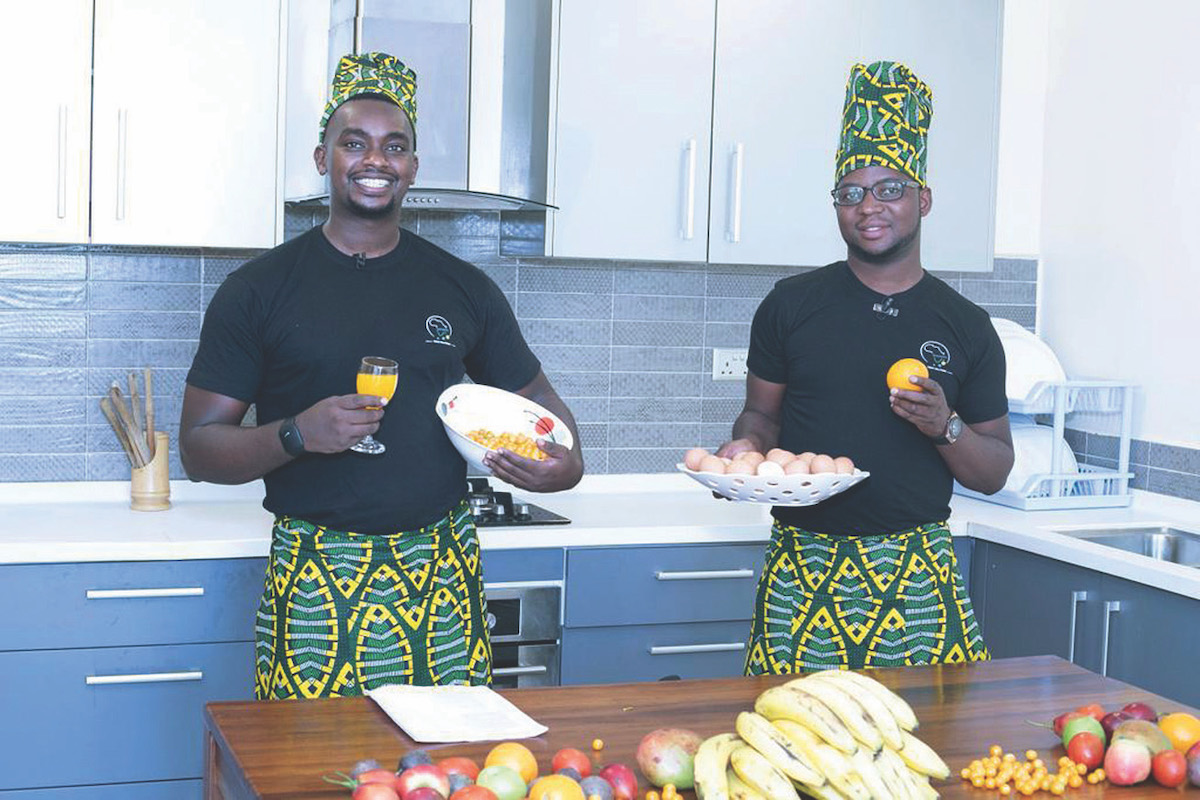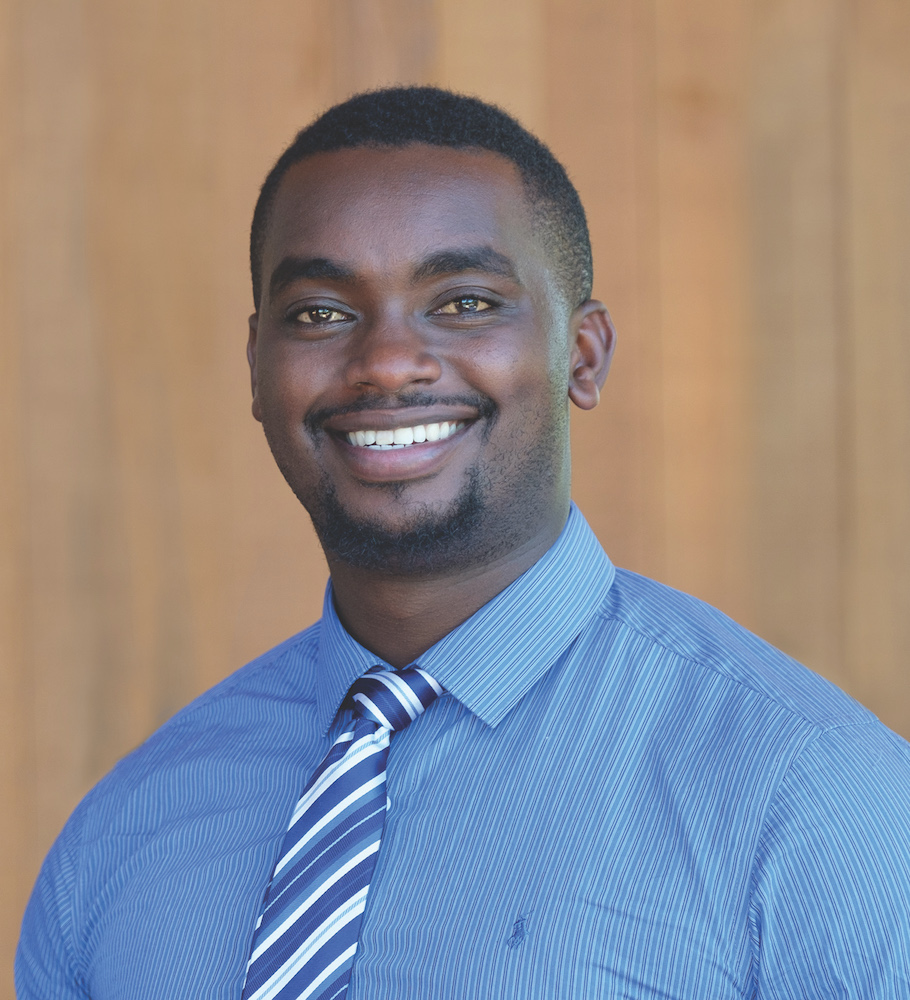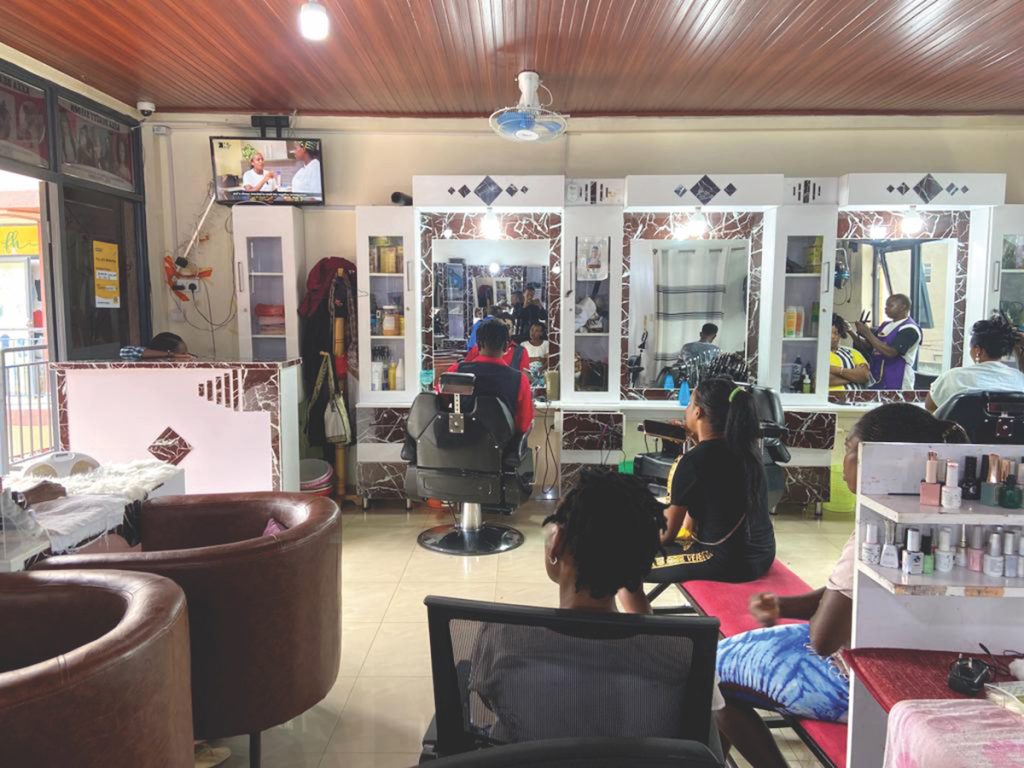Innovating Equity in Rwanda Through a “Cooking” Show

Born to a poor family in Western Province, Rwanda, the country’s most conservative province, Jean Berchmans Uwimana was attending medical school at the University of Rwanda when he began to understand the need for better, and more flexible, systems of reproductive health education. An entrepreneur by nature, Dr. Uwimana founded several nonprofits in Rwanda, including the first non-U.S. chapter of the health equity organization GlobeMed, which connects students and grassroots organizations to promote health equity and social justice. During and after medical school, he also founded or co-founded Medical Doctors for Choice, a vast network of young physicians in Rwanda dedicated to increasing access to comprehensive reproductive health rights, justice, and clinical services; Healthy People Rwanda (HPR), which develops robust road safety, first aid, and other programs; and HPR’s LUBRICATE initiative, which transformed sexual health counseling and therapy for Rwandan women cancer patients and survivors.

His most recent venture is Flavours of Family Planning, a video series that uses food and common kitchen items to teach family planning, with a special emphasis on male engagement.
Dr. Uwimana recently completed a dual MBA/Master of Public Health degree at the Johns Hopkins University Carey Business School and Bloomberg School of Public Health in Baltimore, Maryland. He is looking to use these new tools to improve the global distribution system for medical devices, making them more easily available in low-income countries.
Giving List Women: The Western Province of Rwanda is the most conservative province in the country. What led you to become so passionate about women’s reproductive health and rights?
Dr. Jean Berchmans Uwimana: I was born and raised in western Rwanda, where I was a primary care physician before moving to the U.S. for education. So yes, in terms of culture and religious beliefs, that’s true. And I feel sad about it. They used to tell me that anything related to sex was prohibited – education, et cetera – and from that family perspective, it influenced stereotypes.
When I went to medical school at University of Rwanda, I had a single view of things, conservative and culturally influenced. I joined some associations, some related to the teaching of safe abortion. The sessions were outside of the University, hiding under the tree. One of my friends was interested in that, and he presented to me the vision of the association and said I would go and learn about a new topic. But deep down, I thought, “I am going to probably challenge the members of the association and tell them whatever they’re doing was wrong.” By the first day, they had an outreach in one of the clinics in Rwanda known for treating complications of unsafe abortion. I went to the maternity ward, and I talked to the patients and listened to their stories, and I felt that what they were doing should not be hidden. So, I told them, “Okay, let’s do this. The stories themselves can tell us a lot, so let’s put the stories together, tell people about the stories.” And that became the mission.
Then more students joined. Today, mainly they talk about abortion in the practical context of when we become providers, what should we do in our society? But it’s given me ideas, including shifting to understanding where is male engagement into this agenda? So, I thought of starting something that was innovative, like showing people that we can talk about family planning and contraceptives and relationships. Because the world needs to see us fully engaged. So the program that started was called Flavours of Family Planning, which is also dubbed the “Cooking Show.”
It is an initiative to disrupt male engagement in family planning by employing kitchen materials for hands-on simulation to provide quality, gender-friendly family planning and reproductive health information. We do this by engaging young physicians who are committed to this work, and we simulate as chefs by using fruits and other kitchen items for hands-on simulation to explain different vital family planning, gender-based violence, relationships topics.
GLW: Was there pushback from the community?
JBU: There will always be people commenting. Of course, people may not understand why we are doing it. And that’s why we use new ways of telling people what matters – using funny examples to engage them into the conversation. Sometimes I meet men who say, “What don’t you have in your life that you can go into the kitchen and start talking about all that?” But I think, “Oh, you are talking about the content, so at least now you know what I’m talking about. Even if you’re judging me, at least you have the information.” And it also gives them the opportunity to think it through and to understand the differences between the cultural brackets and the reality in this world.

This is critical. For example, [I recall] a couple that was married for 10 years, from the Eastern Province. They had given birth only to girls, and they have beliefs associated with that, but that’s because of their poor literacy. The family started blaming the woman, believing she was responsible and not capable of delivering boys.
Of course, we know that every child is a child as every human is a human, but some societies have not yet come to understand this concept. So, we produced a straightforward video about sex determination and the role of a male chromosome, using water glasses to show how a male chromosome plays a huge role in sex determination. Without literacy, relationships could end prematurely. In this story, they came back together after the video offered easy-to-understand science.
But this is only one family. We are trying to bring the basic concepts of family planning and reproductive health science to people’s level of understanding.
GLW: How do you address the fact that women are thought of as less valuable to society?
JBU: It’s a core part of our program. That needs to be addressed broadly and in a way that helps people understand the benefits of gender equality in the society and equal access to opportunities.
GLW: What is the best way to engage men and boys in this effort?
JBU: We’ve seen the value of education. Gender equity is not solely a women’s issue, but a societal one. Shared responsibility and active participation from all genders to create sustainable change is imperative. Some men watch our videos, and their comments show that they have reflected on their own attitudes and behaviors and they begin to understand gender issues in their communities, which promotes personal growth and more equitable relationships.
But engagement in the program is critical. Cultural misconceptions and long-lasting gender norms still exist in our societies. Across different societies, you can see how inheritance of land and other valuable properties is unequal. That’s how the differences continue. Programs that address issues from the roots, distribution, access to opportunities, and so on are important and require different systems to collaborate and to engage men so they can become allies.
GLW: You’re saying inheritance determines wealth, which informs power.
JBU: Absolutely. If people don’t get equal access to education, we’re creating an imbalance in the cognitive skills they develop, which will determine the kind of job they do in the future. And that goes hand in hand with money they can make. Once we’ve created the imbalance, then the financial decision-making will go in one direction.
If we address the education piece, then we can address economic inequalities and healthcare access inequalities, political underrepresentation – all these things have roots associated with the kind of knowledge you have and thus the kind of opportunities you have access to.
We see other imbalances, too. How many countries are implementing the coverage of reproductive labor? We know the number of hours that women invest into that, but nobody wants to think about it. So, advocacy is still needed. Empowering more women directly, giving them more opportunities for education, and helping society know that by doing so, it does not only benefit the woman, but it benefits the country – it benefits the society and everyone who is part of the society.